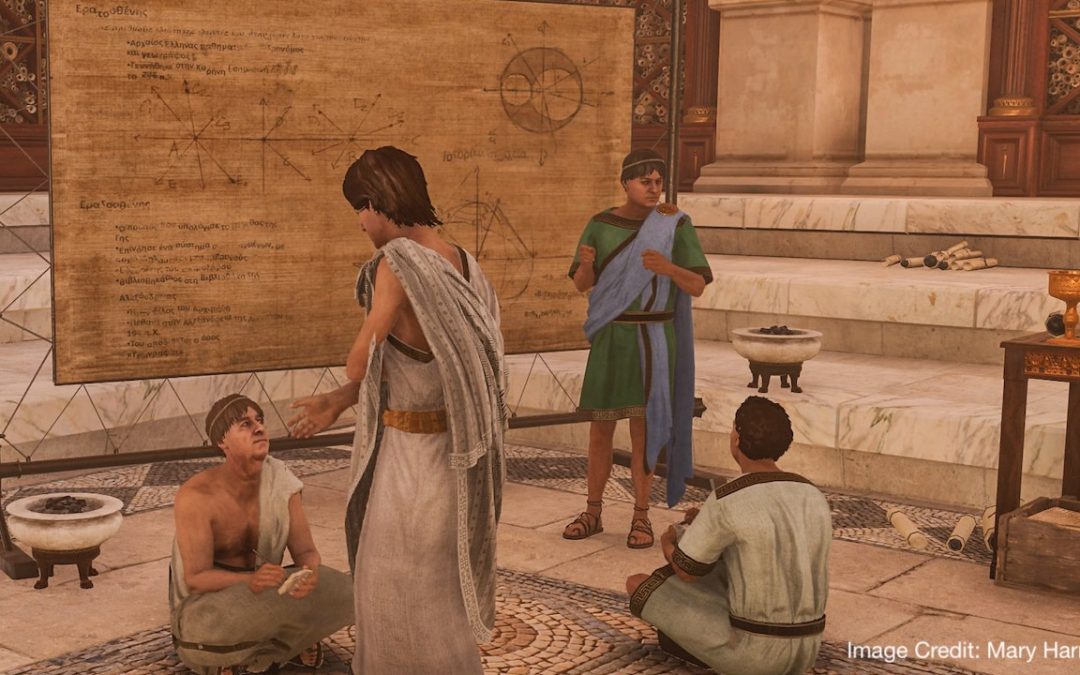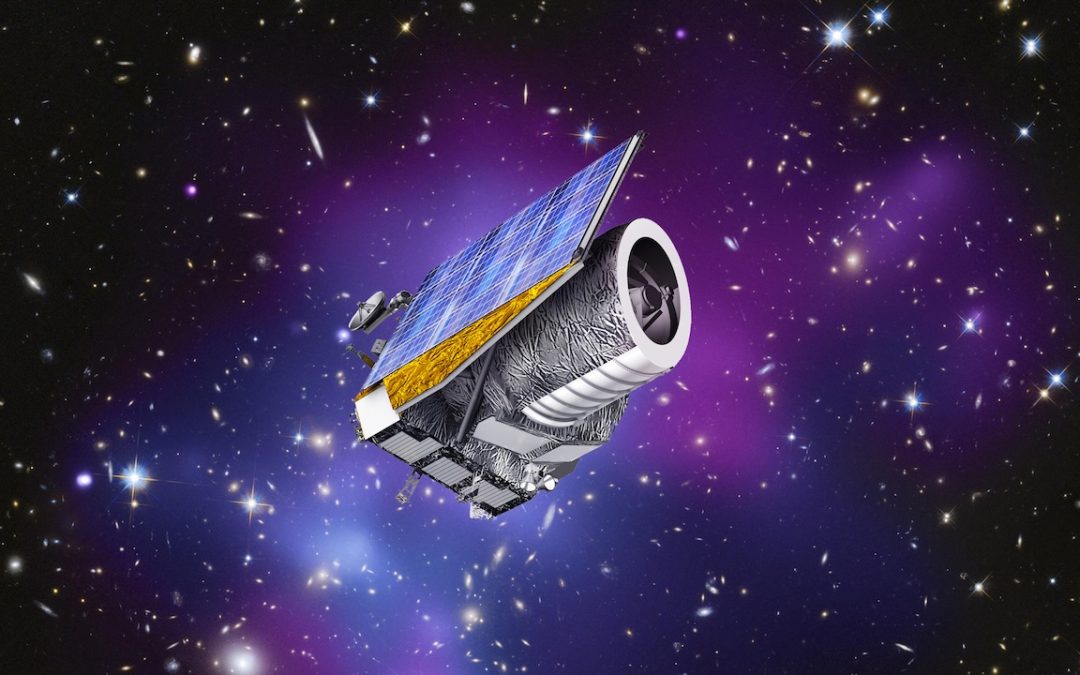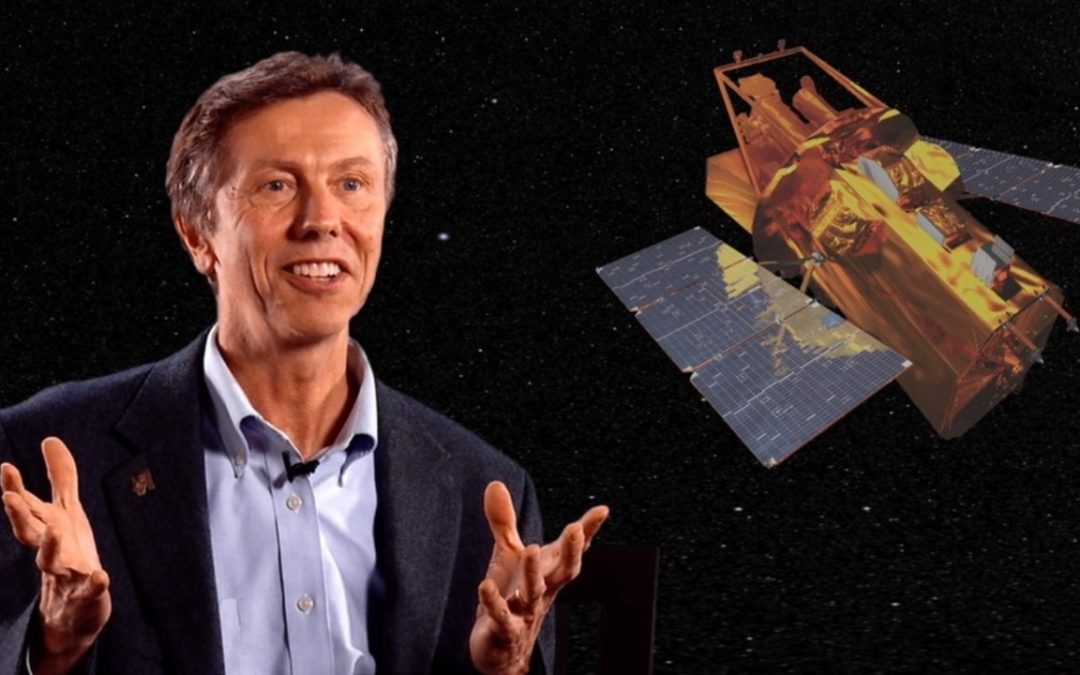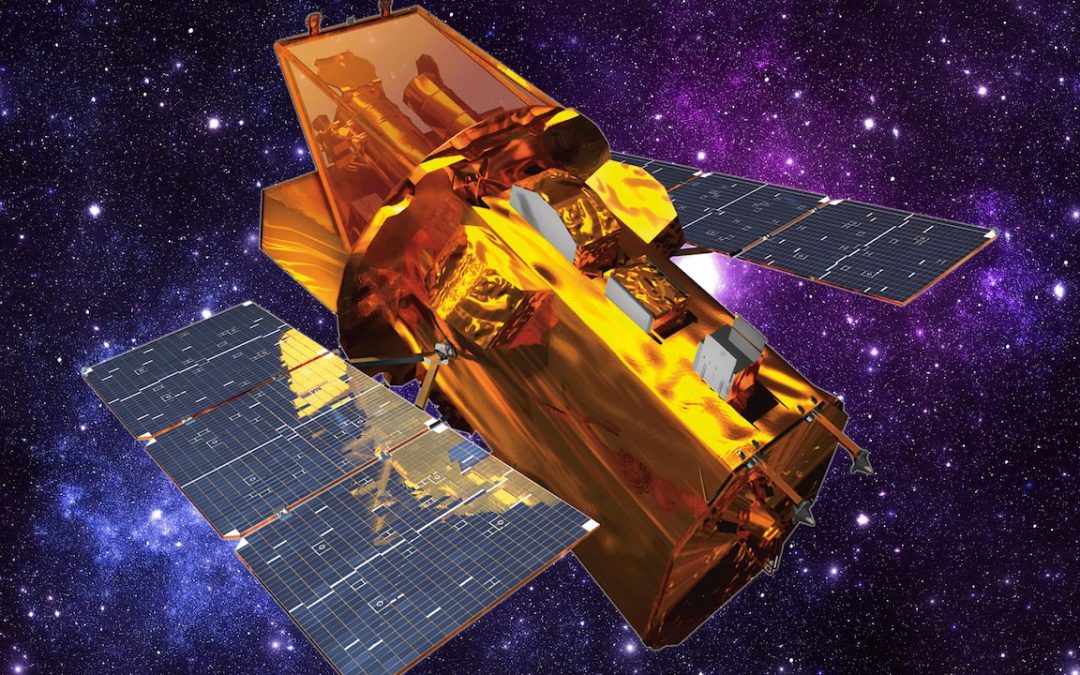Let’s look at the Euclid of Alexandria, the father of geometry and his contributions in celestial mechanics and orbital calculations.



Fraser Cain
Universe Today

Dr. Pamela Gay
CosmoQuest

Let’s look at the Euclid of Alexandria, the father of geometry and his contributions in celestial mechanics and orbital calculations.

Let’s look at the Euclid Space Telescope..

Last week we talked about the Neil Gerhels Swift Telescope, this week we’ll be talking about the man behind the mission.

Let’s look over the long life of the Neil Gehrels Swift Telescope as it watches for the multi-spectral flashes of high energy explosions.
Recent Episodes
We’ve talked about the rising problem of space junk. Okay, we know it’s an issue. So what can be done about it? Today we’ll talk about ideas to remove space junk, making sure space is open to use for the centuries to come. https://www.youtube.com/watch?v=Q7RxmX5eDY4...
https://www.youtube.com/watch?v=Wni5--mzw2Q Last week we talked about the laws that govern space exploration. This week the rubber hits the road. What are the consequences for actually breaking these rules? Are they really going to stop anyone? Download MP3 | Show...
https://www.youtube.com/watch?v=LZOYKDGglo8 The Universe was inaccessible for most of human history, but the first tentative steps to space in the 20th century made humanity realize that science fiction was becoming science reality. New rules would have to be written...
https://www.youtube.com/watch?v=5_1L_P24gT4 It’s been over 20 years since astronomers first discovered that the expansion of the Universe is accelerating thanks to dark energy. And in these decades, astronomers still don’t have much evidence for what could be causing...
https://www.youtube.com/watch?v=2n6HKpWaEEE Astronomers have made extremely accurate measurements of the expansion rate of the Universe and come up with different results. And the error bars for the observations don’t overlap, so there’s something strange going on....
https://www.youtube.com/watch?v=BbMBAivcnes Astronomers came together in January to present their newest research, and not surprisingly, the Winter AAS meeting was heavy on news from JWST. What were some of the new results that were announced? Show Notes | Transcript...
https://www.youtube.com/watch?v=8QwZoy58ZR8 Well, we did it. We made it to episode 666, an auspicious number to be sure. What can we do to celebrate this accomplishment? An episode all about things in the Universe that have been named after mythological people and...
The Cosmic Microwave Background Radiation tells us so much about the Universe. After that era, the Universe went dark. Then, as gas pulled together into the first stars and eventually galaxies, light returned, beginning the Age of Reionization....
The Sun is a third-generation star, polluted with the metals from long-dead stars. Astronomers have also discovered second-generation stars, with very low metallicity. But theories suggest there must be a first generation, with stars made from only pure hydrogen and...
https://youtu.be/ImwJ1FblRhU We generally save our stargazing suggestions for the summer, when it’s warmer in the northern hemisphere. But you’re tough, you can handle a little cold. And it’s worth it because there are some wonderful things you can see in the night...
https://youtu.be/shKSE47JmjY Last week we talked about the missions we’re saying goodbye to. This week, we’re going to talk about some upcoming missions to say hello to. Some are brand new ideas, others are, uh, recycled. Show Notes | Transcript Show Notes Moon...
https://youtu.be/TicUn1-ak3Y It’s always sad to say goodbye, but when we send our robotic emissaries out into the cosmos, it’s just a matter of time before they shut down. Today we’re going to say goodbye to a few missions which have reached the end of their lives....
https://youtu.be/_jE0X9eb-54 Moons orbit planets, planets orbit stars, stars orbit within galaxies. It’s orbits all the way down. But occasionally objects can receive a powerful kick that sends them off on a journey, never to return. PART II PART III Show Notes |...
https://youtu.be/PbOnrSZbRjA Light pollution is a big problem, and it’s only getting worse -- not just near cities but everywhere thanks to increased satellite constellations. How bad is the problem, and how can we fix it? Show Notes | Transcript Show Notes Universe...
https://youtu.be/sdQF-jHLVpk We’re recording this episode on Halloween, so how could we resist but take advantage of this opportunity. Space is already terrifying enough, you know, with the vast endless emptiness, incomprehensible mysteries, and uncaring coldness. But...
https://youtu.be/caF8-BCJGPc Space is a big place, with a lot of galaxies, stars, planets and moons, and that means a lot of names. How do astronomers name stuff, like comets, asteroids, exoplanets, craters? Show Notes | Transcript Show Notes Thanksgiving Day in...
https://youtu.be/QNZmj1XfpmA This week we saw the incredible image of DART smashing into asteroid Dimorphos. Beyond avenging the dinosaurs, what can we learn scientifically from this and other asteroid/comet impact missions? Show Notes | Transcript Show Notes Jupiter...
https://youtu.be/f1ysu0nH1eY It’s been about 65 years since the Soviets launched the first orbital satellite into low Earth orbit: Sputnik 1. Now there are thousands of satellites in orbit, with tens of thousands on the way. Let’s look at the impact that Sputnik had...
https://youtu.be/zk8JkaOdnUY To battle climate change, we’ll need to rapidly move to carbon-free sources of energy. But this technology isn’t a free lunch. They require metals, generate waste and deplete the environment. What’s the best way to balance this shift? Show...
https://youtu.be/RmqwHtTzpzM Climate change is on our minds these days, with increasing wildfires, droughts and floods. What are the variables that play into a planet’s changing climate, and what can this teach us about the search for habitable planets across the...